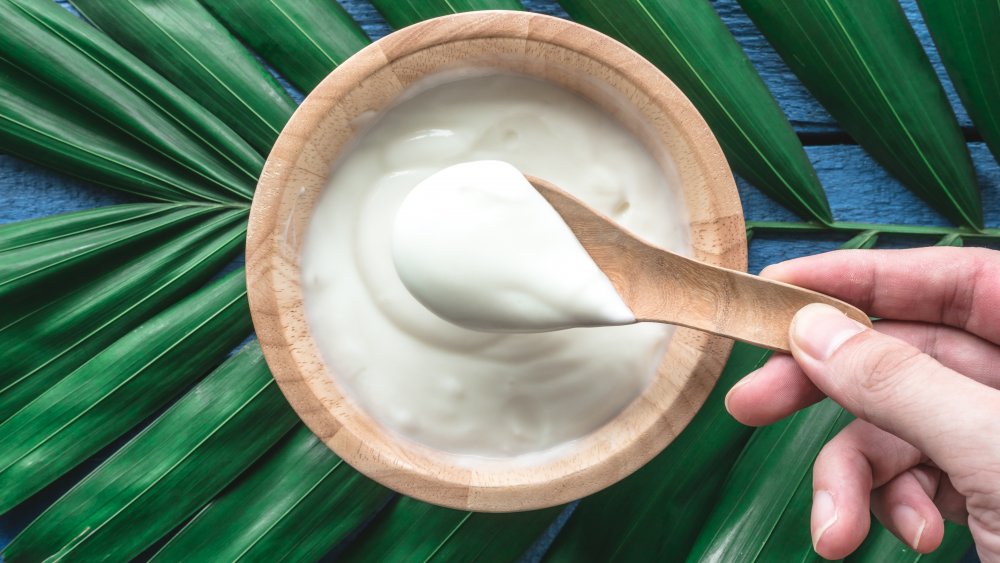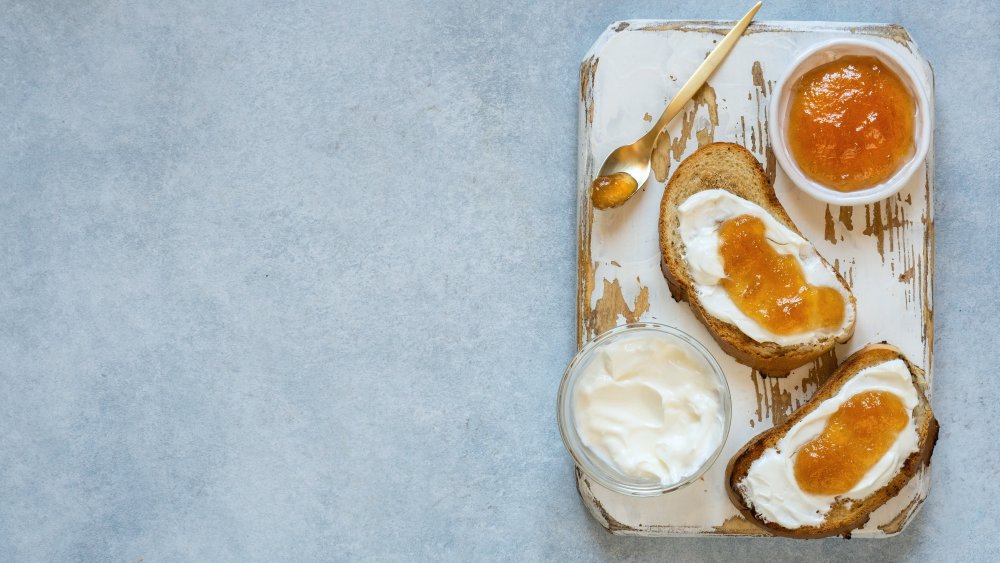This Is Why You Shouldn't Use Fat-Free Dairy Products
Dairy has been riding a health-conscious roller coaster for decades. Is it healthy? Should we be drinking full-on, cold, glasses of milk? Or is it completely unnatural to do so? As people have drifted away from the "Got Milk?" mentality (via New York Times), they've gravitated toward soy-, oat-, and almond-based substitutes.
It leaves a lot of room for debate when it comes to the dairy products we hold so dear. Fat-free yogurt, milk, and even cheese have populated grocery store shelves in a manner that's either exciting or annoying, depending on your perspective. Why not cut down the calories in a smoothie with fat-free Greek yogurt? Why not top your next pasta dish with part-skim mozzarella? "You can hardly taste the difference," you tell yourself. Wrong.
Turns out, using fat-free dairy products doesn't just compromise the flavor of your food (which it totally does). It also might be healthier to choose some full-fat dairy products.
Sometimes, full-fat is healthy-ish
Will a cup of full-fat yogurt have more calories than its fat-free counterpart? Almost definitely. But more calories doesn't necessarily mean something is unhealthy. According to Brian Quebbemann, a surgeon at Chapman Medical Center, full-fat dairy will, quite simply, make you feel full a whole lot faster (via U.S. News and World Report). So eating that bowl of Greek yogurt – in all its full-fat glory – will make you feel satisfied sooner. In other words, "you might actually eat fewer calories throughout the day than you would otherwise," according to Quebbemann.
And, according to a study from Tufts University, dairy fat might actually – get this – stave away the risk of Type 2 diabetes. The fat in dairy "will actually delay the absorption of the milk's sugar," according to dietitian and diabetes specialist Laura Cipullo. However, these studies should be considered the same way we should eat: with attention and care. Harvard University's School of Public Health has still recommended that dairy-lovers avoid drinking a glass of whole milk on the regular (who does that, anyway?) or chowing down on a ton of cheese. Still, there's a case to be made for enjoying full-fat dairy in moderation.
Fat (and flavor) make a difference
"Margarine? That's not food," Anthony Bourdain famously once wrote (via Chicago Reader). "I Can't Believe It's Not Butter? I can." The celebrity chef had a point. Nothing can perfectly, truly imitate real butter. And the same can be said for various dairy products: there's a definite taste difference between full-fat and fat-free cheese. That's because cheese needs fat to exist as you know it – the fat goes into creating the soft, hard, or spongy texture of your favorite cheese, according to The Kitchn. Michael Tunick, an actual dairy scientist, has stated that cheese is so tasty and flavorful because of its fat and proteins (via Business Insider). Since Tunick wrote a book called "The Science of Cheese," we'll take his word for it.
When you whip up a pasta dish with ricotta and parmesan or melt down a grilled cheese with brie and gruyere, you're aiming for a flavorful, dynamic dish. If you only use fat-free cheese, you'll likely taste the difference. And sometimes, it's better to opt for the full-fat option: You'll be full, satisfied, and won't feel like you were cheated out of a great meal. You might even be less incentivized to overeat. "Many people find the texture, taste, and mouthfeel of [fat-free] products to be less satisfying, which either turns them off from the dish altogether or spurs cravings for seconds and thirds as they search for satisfaction," according to dietitian Christine Palumbo (via Eat This, Not That!).


